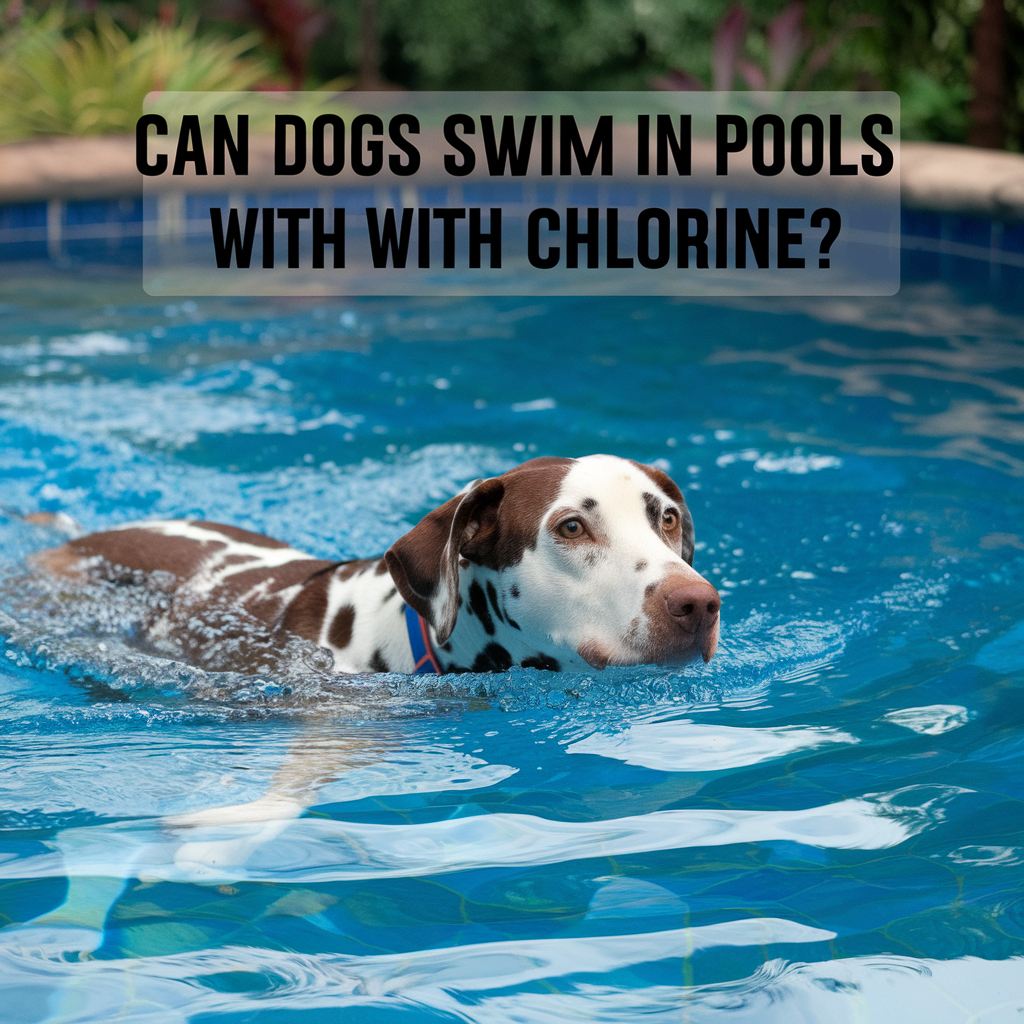
As summer heats up, dog owners often wonder if it’s safe for their furry companions to take a dip in chlorinated pools. This essay explores the topic of dogs swimming in chlorinated pools, considering factors such as their swimming abilities, the impact of chlorine on dogs, safety precautions, and alternative swimming options.
Understanding Canine Swimming Abilities: Some dog breeds possess natural swimming abilities, thanks to their muscular builds, webbed feet, and water-resistant coats. However, not all dogs are natural swimmers, and their swimming capabilities vary depending on breed, physique, and individual disposition.

The Impact of Chlorine on Dogs: Chlorine is commonly used to sanitize pools, but it can cause skin and eye irritation in dogs if exposure is excessive. Some dogs may have sensitivities or allergies to chlorine, leading to discomfort or adverse reactions. Ingesting pool water with high chlorine levels can also result in gastrointestinal distress.
Ensuring Canine Pool Safety: Maintaining proper pool hygiene, such as regularly testing and balancing chlorine levels, is crucial. Rinsing dogs with fresh water after swimming helps remove residual chlorine, reducing the risk of skin irritation. Dog-specific life jackets can provide buoyancy and confidence for dogs new to swimming or needing extra support.
Alternative Swimming Options for Dogs: For dogs with chlorine concerns or sensitivities, natural bodies of water like lakes, rivers, or dog-friendly beaches offer chlorine-free environments for swimming. These natural settings provide enriching experiences for dogs to explore while enjoying a refreshing swim.
Dogs can swim in chlorinated pools, but precautions should be taken to ensure their safety and well-being. Understanding a dog’s swimming abilities, maintaining proper pool hygiene, and considering alternative swimming options can help create a positive swimming experience for dogs. It’s important to be aware of any sensitivities or allergies dogs may have to chlorine and take appropriate measures to prevent discomfort or adverse reactions. By prioritizing our furry friends’ health and happiness, we can ensure they can safely embrace their inner aquatic nature, whether in chlorinated pools or chlorine-free natural environments.
As an Amazon Associate we earn from qualifying purchases through some links in our articles.




